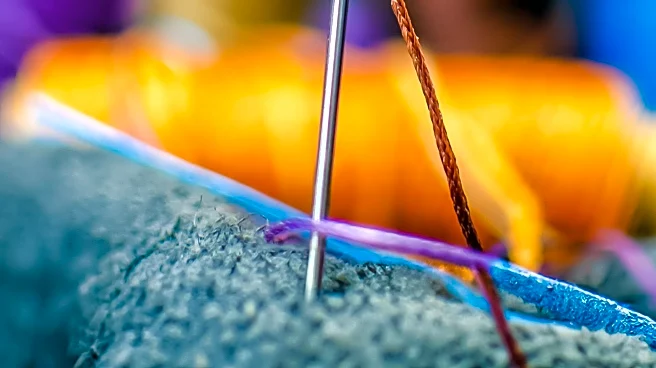What is the story about?
What's Happening?
A 65-year-old woman in South Korea, previously diagnosed with osteoarthritis, sought alternative treatments for her joint pain through acupuncture. During a hospital visit due to severe knee pain, X-rays revealed hundreds of tiny gold threads around her knee joint. These threads were inserted as part of her acupuncture treatments, intended to provide continued stimulation. Gold-thread acupuncture is a practice used in Asia to treat osteoarthritis and rheumatoid arthritis, although there is no scientific evidence supporting its effectiveness. The presence of these threads can complicate medical imaging, such as X-rays and MRIs, and may pose risks like cyst formation or tissue damage.
Why It's Important?
The discovery of gold threads in the woman's knee highlights the potential risks associated with alternative medical practices like gold-thread acupuncture. While popular in some regions, these treatments may delay appropriate medical interventions, potentially worsening conditions like arthritis. The case underscores the importance of evidence-based medicine and the need for healthcare providers to be aware of unconventional treatments that patients may pursue. It also raises concerns about the safety and efficacy of such practices, which can interfere with diagnostic procedures and lead to complications.
What's Next?
Healthcare providers may need to consider the implications of gold-thread acupuncture when treating patients with similar conditions. There could be increased scrutiny and regulation of alternative medical practices to ensure patient safety. Medical professionals might also focus on educating patients about the risks and benefits of various treatment options, emphasizing the importance of timely and appropriate medical care. Further research could be conducted to evaluate the long-term effects of gold-thread acupuncture and its impact on joint health.
Beyond the Headlines
The case raises ethical questions about the promotion and use of alternative medical treatments without scientific backing. It highlights the cultural dimensions of healthcare, where traditional practices may conflict with modern medical standards. The migration of gold threads within the body and their potential to cause harm also point to the need for informed consent and patient education regarding the risks involved in such treatments.














